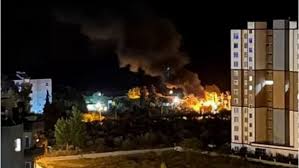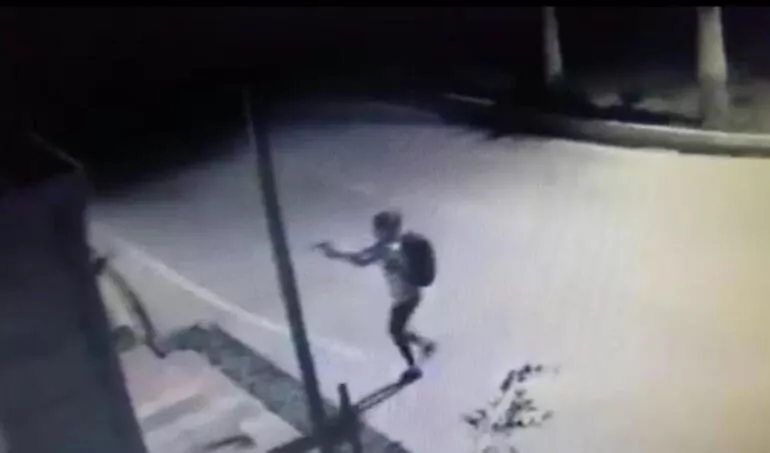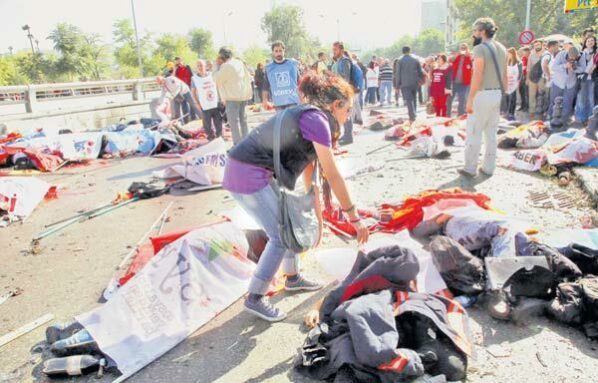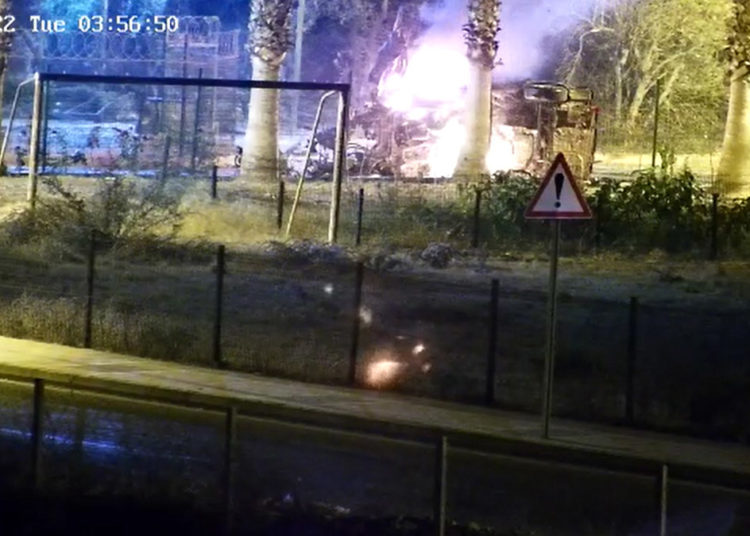Levent Kenez/Stockholm
An attack carried out by the outlawed Kurdistan Workers’ Party (PKK) in the southern province of Mersin last Monday, in addition to being the first such attack on the security forces on Turkish soil in a long time, reminded many in Turkey of the spiral of violence prior to the general election of November 2015. Unanswered questions about the PKK’s attack may indicate the sowing of seeds of the more intensely nationalist climate President Recep Tayyip Erdoğan needs to increase his votes in the June 2023 elections.
Firstly, there is no satisfactory information regarding the timing of the attack, in which one police officer was killed, in a statement made by the PKK claiming responsibility. The PKK said the attack took place due to mistreatment in prisons, the killing of its members and Turkey’s alleged use of chemical weapons. There is nothing new in this statement: Turkey has been in conflict with PKK members, particularly in northern Syria since 2018, and has been conducting unilateral military operations against PKK-affiliated targets there. The PKK has long claimed that PKK convicts are mistreated in prisons and that Turkey uses chemical weapons against PKK militants.
The PKK’s use of two suicide bombers in a single attack is also not common practice. In the past the PKK preferred to use suicide bombers — valuable assets for such organizations — near buses or at bus stops where police or soldiers were gathered in order to cause more casualties. Surveillance footage from CCTV cameras shows that the PKK members who attacked a police clubhouse (Polisevi) made no effort to enter the building. Moreover, the video shows that one of them was moving away from the structure. Police officer Abdülkadir Öztürk, who was injured in the attack, stated that there were about 100 people inside the clubhouse and that they had prevented the terrorists from entering. Contrary to the connotation of its name, the Polisevi is a clubhouse where police officers and their families go rather than a security building. If the suicide attack had taken place inside the building, not only the policemen but also their spouses and children would have been killed. The reason for choosing the Polisevi is not clear, since the PKK tries to act carefully to avoid backlash from the international community for causing civilian deaths.

Another interesting detail is that the PKK waited three days to claim responsibility after the attempted suicide attack and to announce the members who participated in the attack. A few hours after the incident, Turkish Interior Minister Süleyman Soylu stated that one of the two terrorists was Dilşah Ercan and that Ercan was a person included in a report drafted by the main opposition Republican People’s Party (CHP) on jailed journalists in 2013, calling the CHP defenders of terrorists. President Erdoğan also harshly criticized the CHP and said businessmen, politicians and journalists in prison whose rights the CHP and the pro-Kurdish Peoples’ Democratic Party (HDP) had defended were actually terrorists. The next day, all the newspapers close to the government had almost the same headline: “The CHP’s journalist killed the policeman.”
After the PKK issued its statement, it was revealed that Dilşah Ercan was not one of the attackers. Ercan announced that she was alive and well in a video on news sites close to the PKK. While working as a journalist, she claimed to have joined the PKK as a result of pressures in Turkey.
It was noteworthy that the PKK published a video of Ercan with a gun as if to cover up the scandal in which the ministry misidentified her and targeted the CHP.

Another unanswered question is how the PKK suicide bombers entered Turkey. According to Minister Soylu, the attackers traveled 12 hours from Syria’s Manbij city in northeastern Aleppo to the Tarsus district of Mersin by paramotor, a powered paraglider. Soylu explained that the attackers landed in a field at 10:00 a.m. on the day of the incident, which took place at around 11:00 p.m., and then reached the vehicle they used in the attack by walking and hitchhiking. However, experts said on social media that it’s not possible to travel that distance by paramotor and that if it were true, activists staying in the air for 12 hours and reaching the Polisevi without being detected was a major security weakness. It is not known why the PKK members chose a risky journey by air given the fact that it is not difficult to enter Turkey via Iraq or Syria.
An additional detail is that although the police officers who were in the guardhouse at the Polisevi said in their statements that they saw the moment when the female terrorists detonated their bombs, the ministry mentioned in its first statement that there was one explosion near the building and that a man was seized with a gun. Despite eyewitnesses, it is not known why the ministry made such a statement. In the security footage one of the attackers is seen getting shot and falling to the ground, motionless. It was not disclosed how she detonated the bomb in her bag given that she was killed or was too seriously injured to move. Again, the ministry did not reveal what type of bomb was used, contrary to what it has done in previous attacks.
Whether the PKK attack had anything to do with the 2023 elections will soon become clear. However, many in Turkey expressed concern, recalling the events of 2015. In the general election held on June 7, 2015, the Justice and Development Party (AKP) lost its majority in parliament for the first time in its history and was unable to form a government. The HDP also achieved the most successful result ever, receiving almost 13 percent of the vote. Although then-prime minister Ahmet Davutoğlu favored a coalition with opposition parties, President Erdoğan, who was disappointed because he expected his former party to gain a majority in parliament and pass a constitutional amendment switching Turkey from a parliamentary system of governance to a presidential model, did not agree. After Davutoğlu’s resumption of the task of forming a government, Erdoğan did not give the job to the second largest party in parliament but rather used his constitutional authority to declare early elections to be held on November 1, 2015.

Between June 7 and November 1, 2015, 862 people, including security officers, civilians and PKK militants, lost their lives in terrorist attacks. Following a terrorist attack at the Ankara Train Station on October 10, 2015 that killed 103 people, Davutoğlu said the popularity of the governing AKP had increased in the aftermath of the incident. Appearing on public television, Davutoğlu said the government could not arrest suicide bombers until they acted, even though the government had a list of names of potential suicide bombers.
In the elections held on November 1, 2015, the AKP once again won the majority to form a single government. Political observers commented that due to the increasing number of terrorist attacks, the voters decided to let the current government stay in power, worrying about instability and uncertainty.
According to the opposition, Erdoğan, who seems to have lost significant support in the pre-election surveys, once again aims to escalate clashes between the PKK and the security forces and target the opposition through the soldiers and police officers who lose their lives.












